IMDEA Networks

Archives: Events
4th IMDEA Networks Annual International Workshop: Data
Institute IMDEA Networks annually holds a by-invitation-only thematic workshop in Madrid. The workshop accompanies a meeting of our Scientific Council comprised by prominent researchers. In addition to talks by Scientific Council members, the workshop includes invited talks by external experts in the research theme of the workshop. The goal of the 2012 workshop is to foster discussion on a critical aspect of research in networking: data.
Read more arrow_right_altChallenges of mobile content and interpersonal communications in high demand scenario
The increasing capabilities of mobile communication devices are changing the way people interconnect today. Similarly, almost ubiquitous connectivity is leading to the expectation that data and media are available everywhere and anytime.
Read more arrow_right_alt3rd IMDEA Networks Annual International Workshop: Internet Science
Institute IMDEA Networks annually holds a by-invitation-only thematic workshop in Madrid. The workshop accompanies a meeting of our Scientific Council comprised by prominent researchers. In addition to talks by Scientific Council members, the workshop includes invited talks by external experts in the research theme of the workshop. The 2011 workshop theme is Internet science with a focus on social networking.
Read more arrow_right_altKeynote: Challenges and Solutions for Millimeter-Wave Wireless Networks
One of the most promising options to significantly increase data rates in future wireless networks is to vastly increase the communication bandwidth. Such very high bandwidth channels are only available in the extremely high frequency part of the radio spectrum, the millimeter wave band (mm-wave).
Read more arrow_right_alt8th IMDEA Networks Annual International Workshop
IMDEA Networks Institute annually holds a by-invitation-only thematic workshop in Madrid. The workshop accompanies a meeting of our Scientific Council comprised of prominent researchers.
Read more arrow_right_altDISC 2014 - The 28th International Symposium on DIStributed Computing
The International Symposium on DIStributed Computing (DISC) is an international forum on the theory, design, analysis, implementation and application of distributed systems and networks. It is organized in cooperation with the European Association for Theoretical Computer Science (EATCS). This conference, in collaboration with PODC (the ACM Symposium on Principles of Distributed Computing), awards annually the highly recognised Edsger W. Dijkstra Prize in Distributed Computing and The Dissertation Award in Distributed Computing.
Read more arrow_right_altKeynote: Internet of Vehicles - From Intelligent Grid to Autonomous Cars and Vehicular Clouds
Traditionally, the vehicle has been the extension of the man’s ambulatory system, docile to the driver’s commands. Recent advances in communications, controls and embedded systems have changed this model, paving the way to the Intelligent Vehicle Grid.
DataBeers NOTRE
This is a Branded event organized for NOTRE project in collaboration with DataBeers. Following the DataBeers format, the event will feature six presentations focused on data usage in a social context and/or social sciences.
Read more arrow_right_altPhD Thesis defense: Visible Light and Device-to-Device Communications: System Analysis and Implementation
Radio-frequency based wireless communications have revolutionized our society. Thanks to important wireless communication technologies such as Wi-Fi, LTE, and so on, people can enjoy high data rate and pervasive connections while surfing the Internet.
Read more arrow_right_altOn the Past, Presence and Future of “Big (Internet) Data”
With peta-bytes of data that are continuously collected about various aspects of the Internet, how hard can it be to obtain an accurate picture of its traffic, its physical topology (i.e., router-level Internet), its logical overlays (e.g., the Web, online social networks), or its “dark” sides and associated activities (i.e. cyber crimes)?
Read more arrow_right_alt



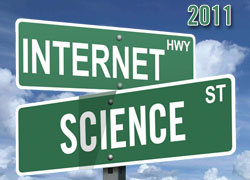
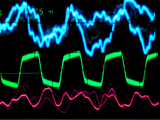
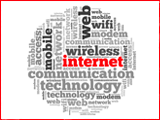
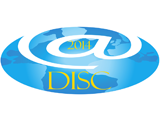

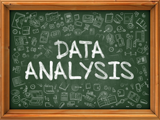


Recent Comments